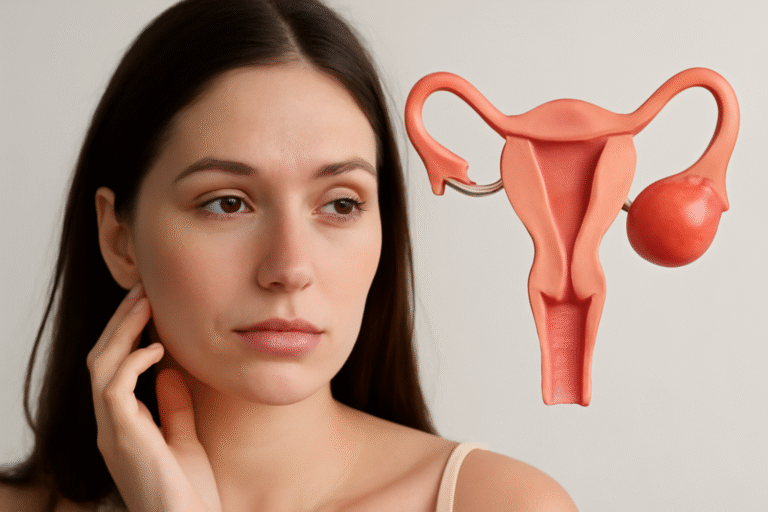With millions of people depending on it to avoid conception, birth control is a somewhat popular approach for family planning. Users do, however, often worry about whether using birth control can cause infertility down road. Many times, this question causes concern, particularly for those hoping to have later in life. This post will dispel misconceptions, examine the link between birth control and fertility, and offer evidence-based analysis to guide your decisions.
Understanding Birth Control and How It Works
Different approaches to birth control help to avoid pregnancy. Among the most often occurring forms are some of:
- Hormonal Methods:
- Birth control pills
- Hormonal IUDs (e.g., Mirena)
- Contraceptive patches and injections (e.g., Depo-Provera)
- Non-Hormonal Methods:
- Copper IUDs
- Barrier methods (e.g., condoms, diaphragms)
- Permanent Methods:
- Tubal ligation (for women)
- Vasectomy (for men)
Usually by either thickening cervical mucus, weakening the uterine lining, or slowing ovulation, hormonal birth control mostly stops conception. Like the copper IUD, non-hormonal approaches provide an environment hostile to sperm.
Can Birth Control Cause Infertility?
The quick response is no; infertility is not brought on by birth control. The following justifies:
- Temporary Suppression of Ovulation
Temporary halt of ovulation by hormonal birth control is reversible. Usually a few weeks to several months after you stop taking hormonal contraceptives, your body starts its normal menstrual cycle. - No Long-Term Damage to Reproductive Organs
Birth control does not compromise your fallopian tubes, uterus, or ovaries. Studies regardless of length of usage demonstrate that fertility returns to normal after birth control is stopped. - Fertility Returns After Stopping Birth Control
Most women find that their fertility recovers soon after discontinuing birth control. This is a broad chronology:
Birth control pills: 1-3 months; hormonal IUDs: immediate to several months; depo-provera injection: 6-12 months (may take longer owing to delayed impact).
Common Myths About Birth Control and Infertility
Let’s disprove some common misunderstandings:
Myth 1: Long-Term Use of Birth Control Pills Reduces Fertility
Fact: No proof using birth control tablets for extended terms influences your future conception capacity. Once the hormones go from your system, fertility returns.
Myth 2: IUDs Cause Infertility
Fact: IUDs—hormonal or non-hormonal—do not cause infertility. Rarely, untreated infections during IUD placement might create problems; the IUD by itself is not the source.
Myth 3: Birth Control Delays Fertility Indefinitely
Fact: Birth control does not “stop your biological clock; it only momentarily delays ovulation. Still the biggest determinant of fertility is age.
Factors That Can Affect Fertility After Birth Control
Although birth control by itself may not lead to infertility, various variables could affect your capacity to conceive if you discontinue it:
- Age: Particularly after 35, fertility falls naturally with age.
- Underlying Health Conditions Underlying medical issues that could affect fertility include PCOS, endometriosis, or thyroid problems.
- Lifestyle Factors Three lifestyle choices that can lower fertility include obesity, too much alcohol and smoking.
- Time Since Stopping Birth Control: Your cycle could take many months to adjust following hormonal contraceptive cessation.
Tips for Planning Pregnancy After Birth Control
Here are some guidelines to maximize your fertility should you intend to conceive following birth control:
- Track Your Cycle: Track your menstrual cycle and find viable windows with ovulation predicting kits or applications.
- Adopt a Healthy Lifestyle: Maintaining a balanced diet, frequent exercise, and avoiding smoking or too much alcohol helps one have a healthy lifestyle.
- Consult a Doctor: See a healthcare practitioner if you have questions regarding your fertility or underlying medical issues.
- Be Patient: Your body may not respond right away when you quit birth control. Most couples start a family one year after trying.
When to Seek Help
If you’ve been trying to conceive for over a year (or six months if you’re over 35) without success, it may be time to consult a fertility specialist. Infertility is often caused by factors unrelated to birth control, such as:
- Hormonal imbalances
- Blocked fallopian tubes
- Low sperm count or motility
Conclusion :
Birth control does not induce infertility; rather, it is a safe and successful means of avoiding conception. After taking birth control, your body may take some time to revert to its natural cycle; yet, fertility usually starts without long-term effects. If you intend to conceive, concentrate on keeping a healthy lifestyle and see your doctor for specific guidance.
Understanding the facts and dispelling myths can help you to boldly use birth control as part of your family planning process without worry of future infertility.




[…] Also Read : Can Contraceptive pills cause Infertility?https://www.conceptioncorner.com/can-birth-control-cause-infertility-myths-facts-and-fertility-after… […]
[…] Also Read : Does Birth Control Pills Will Cause Infertility? […]
This text is like a cup of fine tea — soothing, warming, and quietly profound.